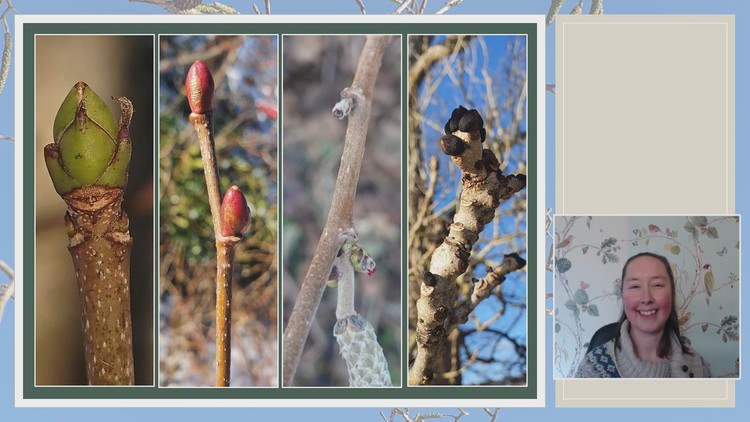
Observe key features of deciduous trees in winter
What you will learn
We will focus on 10 key features of deciduous trees in winter. There will be a different key feature each lesson.
Learn vocabulary to help you make sense of your identification guide and take you a step closer to identifying trees.
After each class you will look at a tree in your local area and record what these features look like on your tree.
By the end of the course you will have built up a field note book of your own observations.
Your observations can be a focus for your art sketch book, a photo diary, notes to inspire your creative writing or a focus for a mindful moment in your sit-spot.
Build nature connections and your nature awareness through regular time outdoors.
Description
Over the course of 10 short videos, you will learn about 9 features of a deciduous tree in winter. Each class will focus on one feature. This is a beginners level course and no prior knowledge is required. You will need access to an outdoor space with a tree that has some low branches. Any deciduous tree species will be suitable for you to make your observations on. To make the course relevant to whatever deciduous tree species are local to you, this course will help you to recognise key features of deciduous trees rather than tree names and identification.
Each class I will introduce a new feature and show you some examples before encouraging you to go outside and spend at least two minutes looking for that feature on a tree local to you. I encourage you to take notes of what you see in a way that suits you. This could be written notes, sketches or a photo diary. I hope that this format will encourage you to go outside into your green space regularly.
By the end of the course, you will have explored bud color, bud shape, budding patterns, bark patterns, leaf scars, lenticels, twig patterns, size and shape of your local tree. To make the course relevant to whatever deciduous tree species are local to you, we will focus on general features of the tree rather than tree names. By the end of the course you will have built up a field note book of your own observations. Your observations can be a focus for your art sketch book, a photo diary, notes to inspire your creative writing or a focus for a mindful moment in your sit-spot.
Content